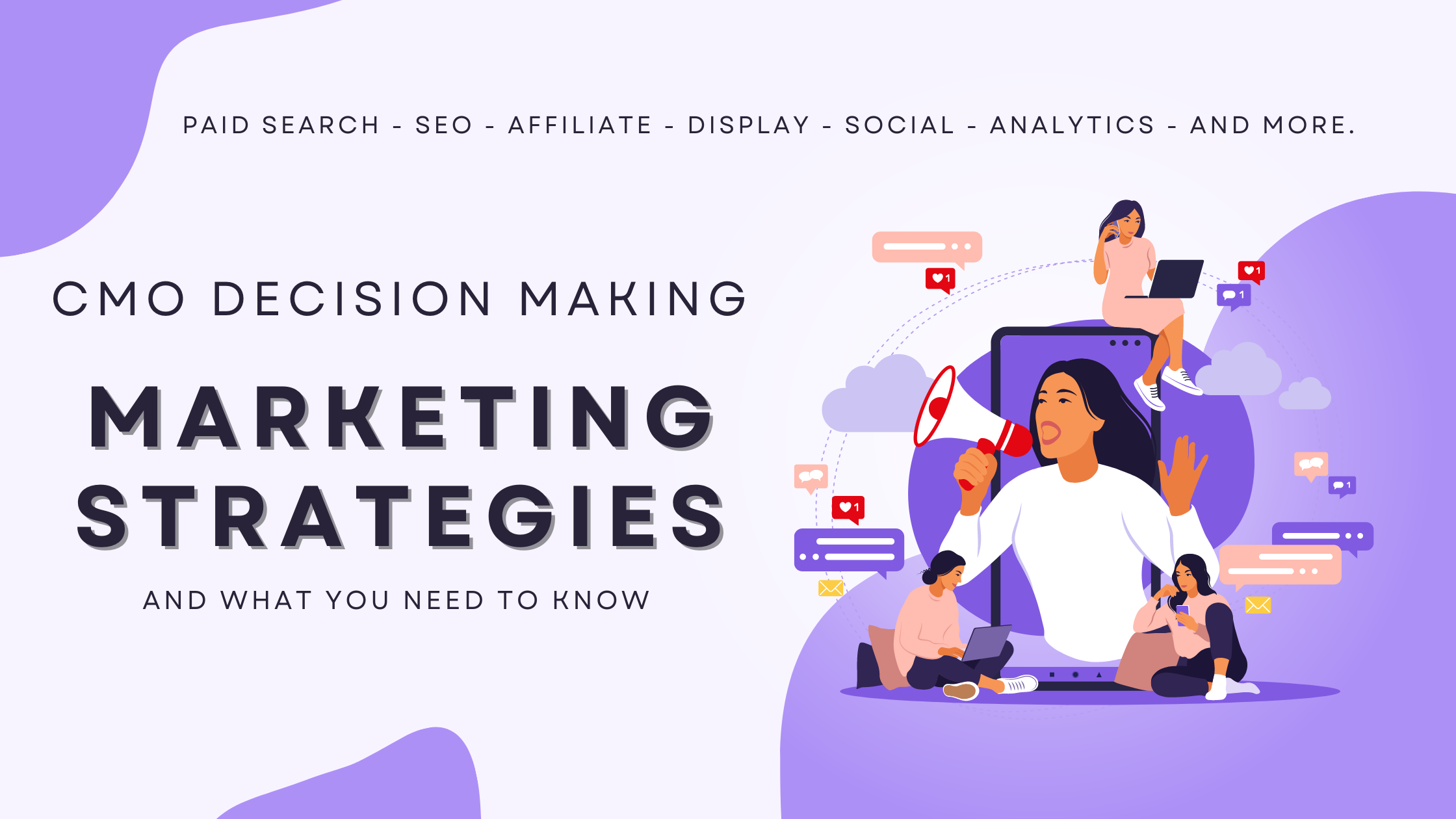Key Insights into CMO Marketing Decisions and Channel Allocation
CMOs (Chief Marketing Officers) think about many variables when making decisions regarding marketing strategies and budget allocation. Their primary concerns often revolve around driving business growth, maintaining brand health, and adapting to the changing consumer and competitive landscape.
The following article breaks down what CMOs think about, what they care most about, and how they make decisions on marketing channels (including what to invest in):
1. Business Growth and ROI
CMOs prioritize strategies that maximize growth while delivering a strong return on investment (ROI). They focus on customer acquisition costs (CAC) and lifetime value (LTV). Performance-based marketing channels like paid search and affiliate marketing play a central role.
According to McKinsey, brands that optimize for these metrics see substantial long-term gains. Here’s an example of how McKinsey looks at it. CMOs allocate budgets to channels that show measurable results and drive customer acquisition efficiently.
2. Brand Health and Awareness
Beyond immediate sales, maintaining brand visibility and customer trust is vital. CMOs invest in brand awareness initiatives like content marketing and influencer partnerships. Ensuring brand differentiation and reputation is a long-term focus. A good example is Nike’s approach to building a global brand identity, blending creativity with data-driven strategies.
To achieve brand health, CMOs balance performance marketing with strategies that build equity over time.
3. Customer Experience and Engagement
Delivering a seamless, personalized experience is essential to customer satisfaction and retention. CMOs use CRM platforms and social media channels to engage with their audience and build loyalty. Transitioning to omnichannel marketing, they make sure the customer journey is consistent across all touchpoints.
Want to learn how to position appropriately to give the best customer experience? Check out this brilliant video with April Dunford.
4. Data and Technology-Driven Marketing
Leveraging data and technology enables CMOs to make informed decisions. Real-time data and marketing automation are essential for optimizing campaigns. In fact, Harvard Business Review notes that AI-driven marketing tools can enhance customer targeting and personalization, driving efficiency across digital channels.
CMOs invest in platforms that provide insights into customer behavior and predictive analytics to refine marketing strategies.
5. Adaptability to Market and Consumer Trends
Adapting to shifting market trends is essential for long-term success. CMOs keep an eye on new trends such as social commerce, AI-driven campaigns, and ethical marketing practices. An agile marketing strategy helps brands stay relevant in competitive environments.
6. Cross-Channel Integration and Attribution
CMOs are increasingly focused on building cohesive, cross-channel marketing strategies. Tools like customer data platforms (CDPs) and advanced attribution models help optimize the customer journey. This ensures that every channel contributes meaningfully to overall business goals.
7. Sustainability and Purpose-Driven Marketing
Many CMOs are aligning marketing efforts with sustainability and corporate social responsibility. Consumers are more likely to engage with brands that reflect their values, leading to stronger loyalty. This is seen with Patagonia’s branding, which integrates environmental responsibility into every aspect of their marketing.
In Conclusion
CMOs make marketing decisions based on a combination of data-driven insights, consumer behavior, and long-term brand-building strategies. By focusing on ROI, brand health, and customer experience, they are well-equipped to navigate the complexities of modern marketing.
If you’re interested in learning more, read Deciphering the Mind of a CMO, or listen to my keynote with this Dynamic CMO Panel at Affiliate Summit West.

